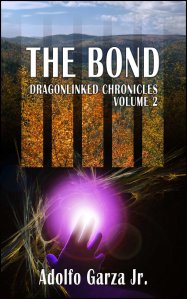I’ve been working on book 3 of the chronicles since Monday. I knew, in general, what I wanted to accomplish with the book, but I had no ideas about specifics. So I spent Monday brainstorming with OpenOffice Calc opened on a new outline spreadsheet. It was completely blank except for the headings: Timeline. Plots. Plot Points. I sat and stared at it. It was so blank. Where to start? Well, what did I have, story-wise? I had a vague idea of what should happen by the end of the book and I had a potential starting point, the epilogue of the second book. But starting right at the end of that would be a little boring. There wasn’t much going to happen at that point, aside from the surprise that had already occurred. And something pulse-pounding or dramatic or scary or something action-y should open a book. But nope. I had no ideas for an opening.
Alright, I thought, then think more about the book as a whole. It took me a few hours, but eventually I filled in some plot points. Not all from the same plot, and not all actual plot points. Some were mere scenes that I knew could eventually become plot points. I think I filled in maybe six that first day. Even so, it felt a little underwhelming. But it was just the first day–I had time. More ideas would come as more plot points were filled in. One idea would lead to another and that to another one or more, and so on.
Yesterday, I decided to use one of my tricks from writing book 2: focus on one subplot at a time. I knew who/what the antagonist was going to be, so I decided to focus on the subplot that would get Antagonist hooked into the main plot. I sorted the spreadsheet by plot and started brainstorming again. It helped. I came up with many ideas about how Antagonist would think and actions (along with Protagonist reactions) that might be taken during the three acts of the book. I also made sure I could come up with justifications for those actions that made sense. At the end of the writing day I had about eight more points for that sub-plot. They were decent enough, would lead to some exciting and cool scenes and events, but something was nagging me.
It wasn’t until a few hours after I’d stopped writing for the day (I never stop thinking about a work in progress, or rather, my brain never stops thinking about it) that the reason came to me: this whole sub-plot didn’t excite me. It wasn’t that it was boring, it just didn’t click for me. And if it didn’t click for me, I wouldn’t be able to make it click for a reader. To make matters worse, another subplot I’d thought of didn’t seem to be related at all to this one, which meant one or both should be eliminated. But I loved that other sub-plot. Not only was it cool, it could dovetail into ideas I had for future books. A few thoughts on adjusting the Antagonist sub-plot popped into my head throughout the rest of the night, but I was still unsatisfied.
This morning I grabbed my mug of coffee, my cinnamon toast, and headed to the computer determined to tweak this sub-plot and make it better. I spent an hour or two brainstorming. What if this happened, or that? What if Antagonist had this desire, or that desire, instead? The ‘what if’ game helps to come up with potentially off-the-wall ideas, some of which can be awesome. But I was having no luck. I decided to think about that other sub-plot. How could I get it involved in this sub-plot? I spent time thinking about it but couldn’t come up with anything. That is, until I thought: How can that sub-plot be connected to Antagonist. I thought about Antagonist a bit and an idea came to me. It would mean abandoning the current sub-plot entirely and scrapping everything I’d done on it the last two days. So what? Sometimes you have to kill your darlings. Whether they are darling because they are awesome, or darling because you worked so hard on them, if they don’t work, lose em.
Now, I’m not entirely crazy. I saved the current outline and then used Save As to create a draft 2. In the new draft is where I would start fleshing out this new sub-plot. I’d have the old one handy in case this new one didn’t work. I sat back then and thought about the new plot. I spent a few hours doing so, following ideas where they lead and considering how everything could be connected into a story. It was working rather nicely. And as I thought and typed in plot points I realized something: this new plot clicked with me. I liked it. I liked where it was going, where it came from, and some of the things that could happen because of it. It also gave me an idea for a dramatic prologue.
That’s not to say it will end up exactly as I have it conceived right now. It might end up being tweaked later, but it certainly feels more right than the previous one. So don’t be afraid of scrapping something that isn’t working. It just might give you the freedom to come up with a better idea.

